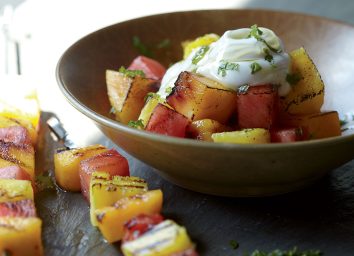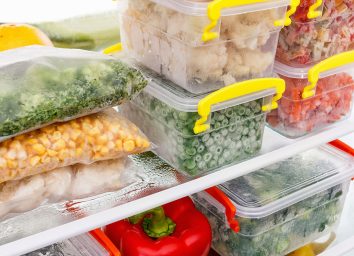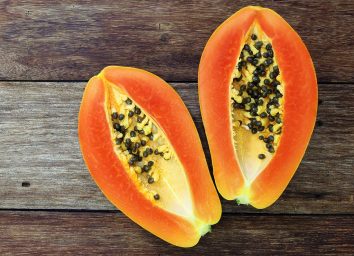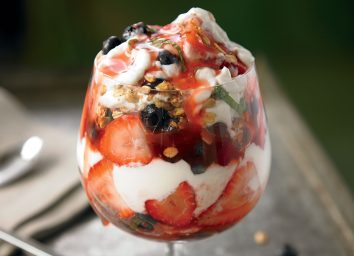Is Freeze-Dried Fruit Healthy? This Is How It Compares to Its Fresh Counterpart
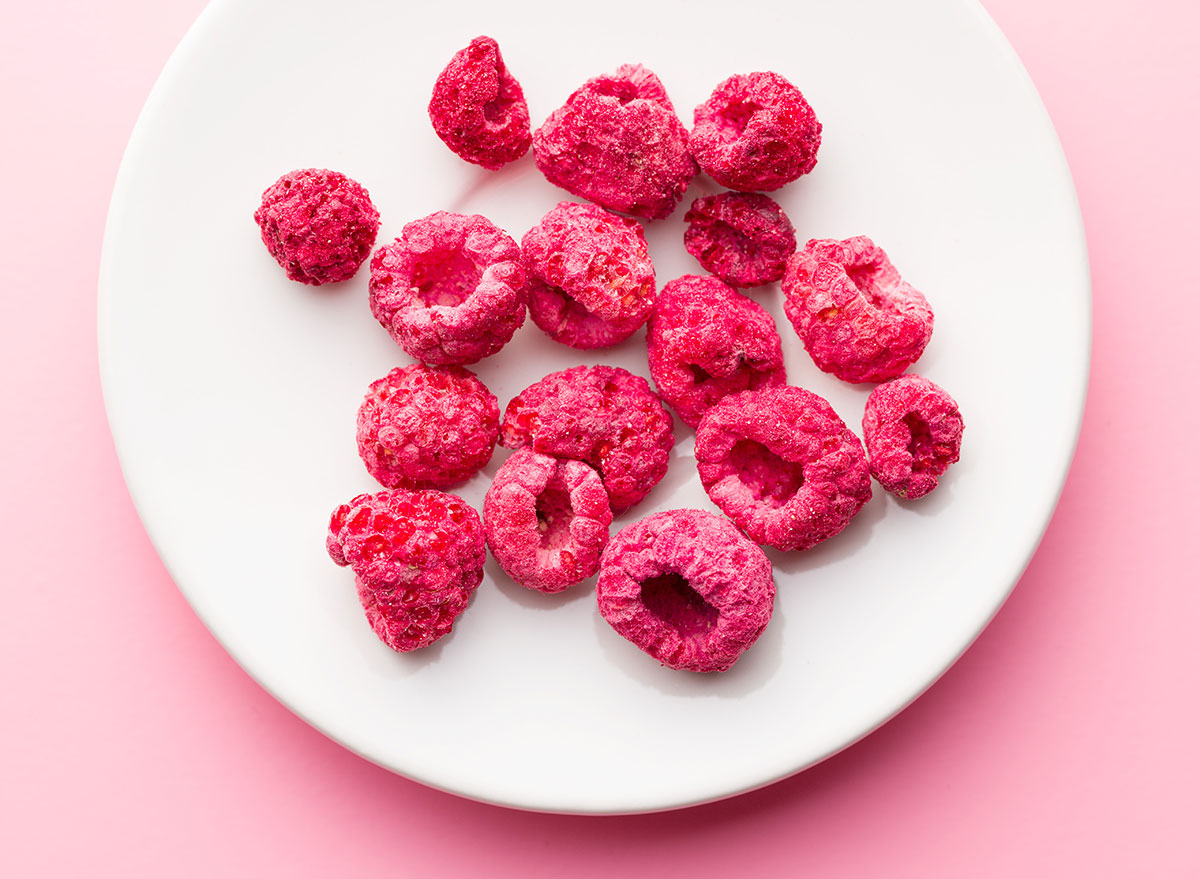
Fruit is often thought of as nature’s candy: it’s delicious, nutritious, and sweetened with all-natural sugars. Unfortunately, fruit in all forms has come under speculation, because said natural sugars—which are made up of a combination of sucrose, fructose, and glucose—are sometimes confused for refined sugars derived and processed from sugar cane and/or sugar beets. Fortunately, these myths are steadily being debunked one by one.
However, frozen fruits have been proven time and again to preserve nutrients, and dried fruit has been cleared as fine for snacking, as long as you’re mindful of portion sizes and reaching for the unsweetened variety. So what’s the 411 on freeze-dried fruits? Are they healthy? Do they, too, preserve the nutrients of freshly picked options? Here’s everything you need to know.
What is freeze-dried fruit, and how is it made?
According to Gabby Geerts, a registered dietitian at Green Chef, the freeze-drying process is unique because the fruit undergoes sublimation, in which frozen water is evaporated directly from ice to water vapor, removing 99% of moisture from the fruit, without ever having to enter a liquid phase.
Here’s how it works: “[Fruit] is placed inside a vacuum chamber where the temperature is below freezing,” Geerts explains. “The temperature is slowly raised, and the solid water molecules enter a gaseous state without ever becoming a liquid.” In doing so, the structure of the fruit, as well as its nutritional value, is preserved.
How does freeze-dried fruit compare nutritionally to frozen and dried fruits?
While fresh fruit is obviously the ideal choice, Lindsey Kane, RD for Sun Basket, says freeze-dried and frozen fruits are actually your next best bet in terms of nutrition. In fact, “frozen and freeze-dried fruit are often more nutrient-dense than their fresh counterparts because they are harvested while in-season and immediately flash-frozen or freeze-dried to lock in all of its good-for-you nutrients,” Kane explains.
What’s more, compared to dried fruit that “only removes about 75-95% of moisture through simple dehydration,” which is “often associated with a loss of vitamins A and C, thiamine, riboflavin, and niacin,” Geerts explains that freeze-dried fruit maintains most of its nutrients, save for fiber and vitamin C, as fiber is contained in the cell walls and skin of fruit, while vitamin C is water-soluble and quickly broken down. Plus, freeze-dried fruit is bursting with natural flavor, so it doesn’t need to be sprinkled with additives or extra sugar to please your taste buds.
What are the benefits of consuming freeze-dried fruit?
Greg McMullen, the founder of Everipe, a plant-based, superfood smoothie company, says that he and co-founder Kerry Roberts Sneyd decided to build their brand using freeze-dried fruits and vegetables because of their many benefits—nutritional and otherwise.
“Once our discovery process led us to freeze-dried, with all of its benefits, we got excited about the potential [to create a product with] an extended shelf life, [that can be] stored in your pantry, [is] portable, and delivers all the sensory moments (visual, smell) that I’d been missing in powders,” he explains. “All these benefits layered perfectly on top of our overall purpose to help people eat and feel their best easily.”
Taste
Fruit is naturally bursting with flavor, and freeze-dried fruit packs just as satisfying of a punch, despite all the steps it goes through. So if you were unsure what would pair best with freeze-dried fruit, just know it’s the same foods you would pair with fresh fruit!
Shelf-life
“In theory, freeze-dried ingredients can store for years,” McMullen says. The benefit of freeze-dried fruits, in general, is that because they can live in your pantry, choosing freeze-dried fruits for smoothies over bulky bags of frozen fruit saves you space in your freezer, and they’re always readily available when you’re looking for something nutritious.
Travel-friendly
Not only do freeze-dried fruits take up minimal space in your pantry, but they’re also lightweight, portable, and, as a result, perfect for travel. Everipe’s freeze-dried smoothie packets, for example, are versatile because you can eat them out of the bag as a snack, sprinkle them over hot oatmeal in the morning for a boost of superfoods, or, take a page from Everipe’s book and create smoothies on-the-go.
Do process fruits actually have more sugar than fresh fruit?
Processed fruits, like freeze-dried or unsweetened dried fruits, get a bad rap for allegedly being quite the sugar bomb, but Kane would like to put that rumor to rest.
“One of the common misconceptions is that freeze-dried or dried fruit (unsweetened) has more sugar than fresh fruit. That simply is not true,” she says, revealing that the actual difference is in the difference is the concentration of sugars, not the amount of sugar.
“During the freeze-drying process, moisture is removed from the fruit, which means the fruit shrinks in size, and, in turn, concentrates the sugar content and makes it easier to consume more servings in one sitting than had it been consumed in its fresh form,” Kane says. To put it into perspective, Kane says to envision a bunch of 20 grapes next to a small handful of 20 raisins. “Both of these snacks contain the same amount of sugar,” she explains, but the difference is how the fruits make you feel after consumption.
“The average person would likely snack on 20 grapes over a course of 10 minutes, and walk away feeling relatively full. As for 20 raisins, the average person could likely consume this snack in 1 minute, and still feel relatively hungry, likely reaching for more raisins,” Kane says. In other words, (unsweetened) dried or freeze-dried fruit doesn’t have a higher sugar content than fresh fruit, but it is easier to eat it in larger quantities, yielding a higher concentrated amount of sugar, in a shorter period of time.
So, because it’s easier to digest more, the solution is to be more mindful of your portions. Kane also suggests pairing freeze-dried fruits with some protein and healthy fats, like a handful of almonds, to help you stay on track, and eat a more well-rounded snack or meal.
